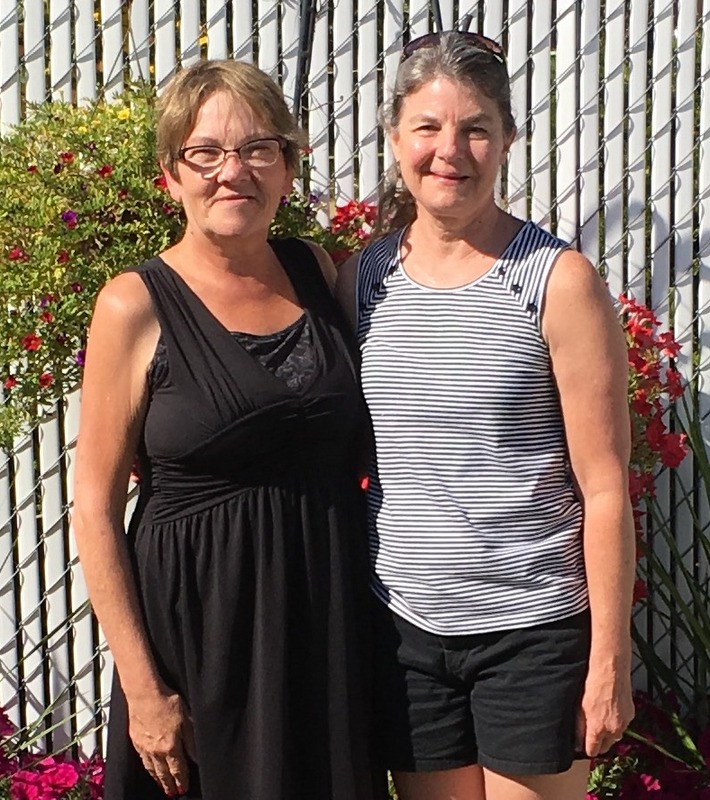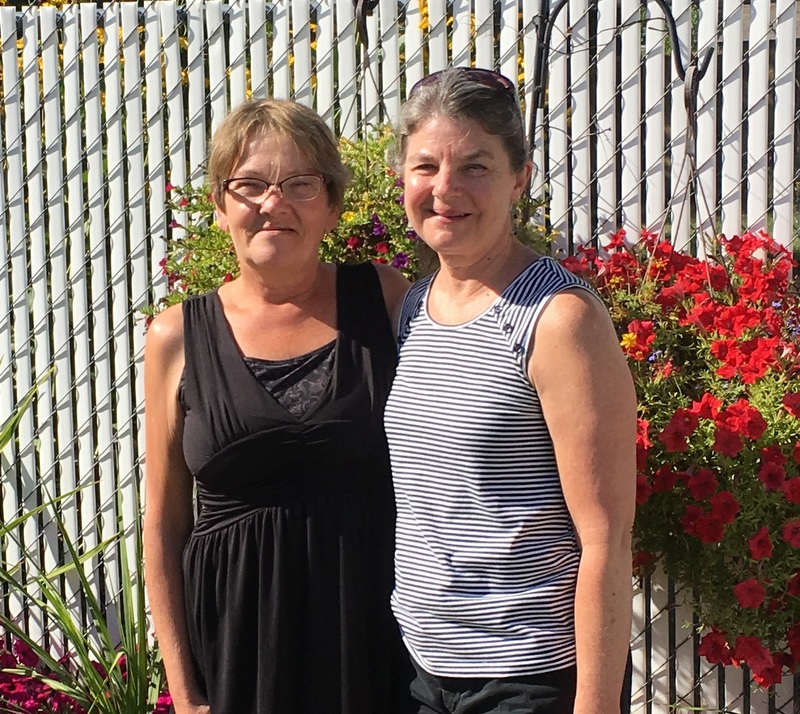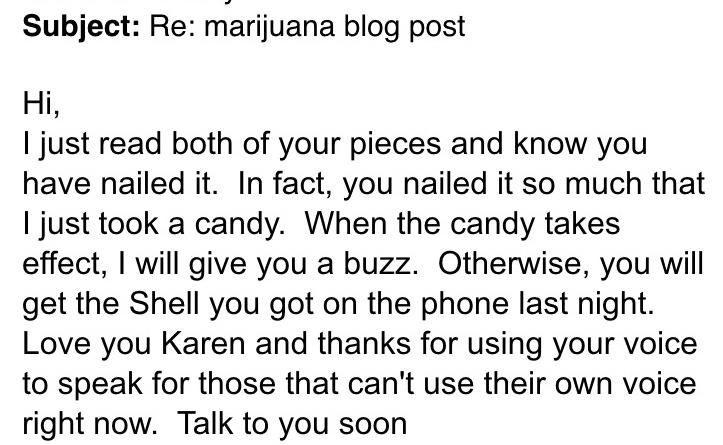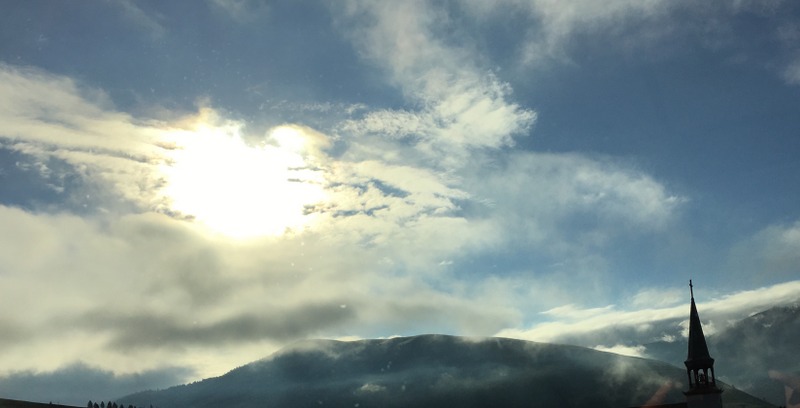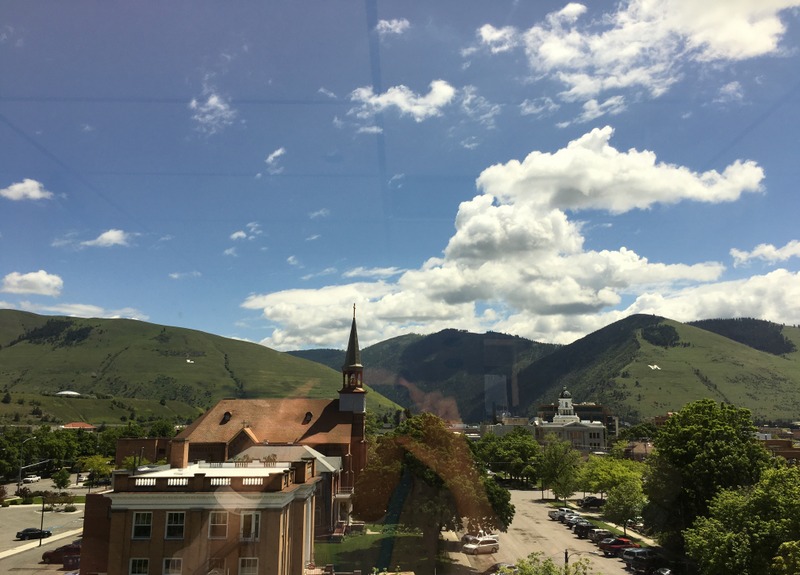My eighty-nine-year-old father died on January 5, five days after breaking his hip. He was scheduled for surgery January 3–delayed until his body cleared blood thinners—but worsening congestive heart failure declared itself early that morning. “I’ve had a good life,” Dad said, voice breaking after hearing that his body couldn’t tolerate surgery, that we’d keep him comfortable until his reunion with an army of family and friends in heaven.
My mom and I ordered his breakfast, our thoughts shifted from hoping he would make it through surgery without complications to anticipating the logistics of in-home hospice care. When the first of my siblings arrived, Dad told her, “When the going gets tough, the tough get going.”
Inducted into the Butte Sports Hall of Fame in 2009 for his teenaged boxing prowess, we didn’t know whether those were fighting words or a reference to heaven. Fighting words, it turned out, when he mentioned his caregiver soon after: “Maria’s going to have a job.”
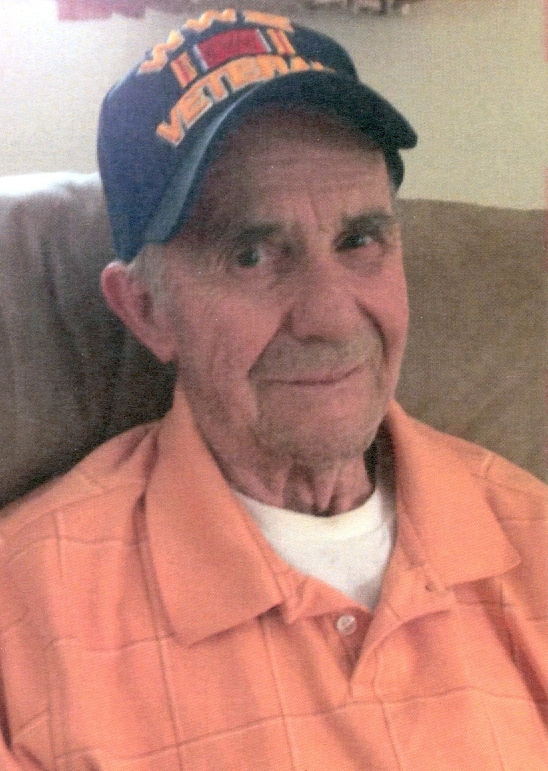
The hospitalist switched him to oral morphine, which relieved Dad’s pain without the sedation of IV Dialudid. He had a glorious day: visiting with Mom and six of their eight children, talking and singing on the phone to grandchildren, and visiting with Maria.
A champion of veterans’ rights, he had planned to testify on their behalf twenty-three times at the Montana legislature this session. Now, instead of Mom being chauffeur and copilot as he navigated the Capitol halls with his walker, Dad dictated testimony from his hospital bed for her pinch-hitter appearance. He talked so fast, it took two of us to take notes.
“Madam Chair and all members of the State Senate Veterans’ Affairs Committee:
For the record, my name is Catherine Antonietti, wife of Dan Antonietti, who is in the hospital and unable to attend this legislative session. He is a member of Post 1448 in Butte, Montana, which is a mile high and a mile deep and all the people are on the level.”
He grinned, then continued in his own words.
“I was the Legislative Chairman of the Veterans of Foreign Wars at the state and national levels. I voted yes for all legislative bills for the last sixteen years and I continue to cast my vote for every veteran’s bill held in this legislature. I’m glad to see you all back. Thank you, Madam Chair. You’ve all been a big help and I am proud of all of you.”
I fought back tears at his tender words, thinking how proud I was of him. Laughter followed when he said he wanted a beer, then asked for ice cream instead. We told him he could have both. “Just ice cream,” he said. “The kind I like.”
Two sisters went on a grocery run, returning with a half-gallon of ‘Mocha Me Hoppy’ and beer—just in case. Dad had three servings of ice cream that afternoon and evening. He had a couple of bites the next morning, which turned out to be his final meal. He began a steady decline, transitioning from oral morphine to a continuous IV infusion by the time the hospice nurse and social worker arrived for a family consult the following morning.
They asked if we wanted to go to a conference room. Dad hadn’t talked or opened his eyes since the previous evening, but they reminded us hearing was the last to go. We said we wanted to stay.
The nurse listened to his heart and lungs, then said it might only be hours before he passed. She talked about end-of-life care and offered condolences. The social worker did too, lingering to take contact information for bereavement follow-up—offering thirteen months for any or all.
She suggested one-on-one goodbyes with Dad and, after she left, we exited the room so Mom could go first. All eight of us and one brother-in-law followed. Dad’s brow wrinkled in concentration. He didn’t open his eyes, but he moaned and moved his lips. I felt his words in my heart. He died peacefully eleven hours later.
As we reconvened the following morning to discuss funeral plans, Vice President Biden and Congress met to formally count electoral votes. That morning I read factual news, not fake, about fifty-plus ineligible Republican electors—ineligible because they didn’t live in their Congressional Districts, or because as elected officials, they were barred from being “dual office-holders.”
Days earlier, I had contacted numerous senators and representatives, urging them to object to electoral votes because of voter suppression, Russian interference, and because electors’ requests for a briefing on foreign interference had been denied. That morning, I called Montana’s three Members of Congress again, pressing for objections based on this new information.
I felt joyful driving to the mortuary. I imagined Dad and his fellow warriors working the Democratic Caucuses from above, particularly Senator Tester who had known and respected him for his veterans’ advocacy. I sang en route:
Papa Dan, you are the man, you’re up in heaven to take a stand to help change the history of our country. The country you loved and fought hard for, Donald Trump will be no more president-elect of this, our great country. Hallelujah, Hallelujah. Hallelujah, Hallelujah.
I knew my chorus of angels might be hypothetical, but I believed the Democrats would fight for justice. Constituents had urged objections for weeks. President Obama had imposed Russian sanctions. Fifty ineligible electors tipped the scale.
I checked my phone when we broke to look at caskets, certain that Colin Powell’s three electoral votes would multiply and he would be elected President. Premature I knew, because objections, debates, and subsequent votes would take time, but I checked again before we segued to our meeting at the cathedral.
An hour later, I read the devastating truth in a grocery store parking lot: not a single senator objected to the votes.
Dad emboldened me with the motto: “You can’t win if you don’t try.” Numbed by the Senate’s inertia, I didn’t cry until driving one hundred twenty miles the next day to pack for his funeral. Angry tears spilled down my cheeks. I cursed Democratic senators and told them about my dad.
He was a fighter. Not a quitter. His dad died when he was ten. Butte-tough, he was a fourteen-year-old featherweight champion. He would have excelled at other sports, too, but he had to work to help support his family.
He was a WW II Veteran. He enlisted in the U.S. Navy in 1945, but was honorably discharged after breaking his back in a car accident. Determined to serve his country, he enlisted in the U.S. Army in 1946 and served in the post-war occupation in Japan.
He was a Blackfeet Nation Indian Chief. Honored for his role in securing programs and funding for the Blackfeet people, he was adopted into the tribe in 1972 and given the name A-pi-na-ko Si–pis-to: “Morning Owl.”
He liked Bernie Sanders. Days before he died, he said to me, “I wanted to vote for Bernie but you said that would be a vote for Trump so I voted for Hillary.” He was heartsick that Hillary won the popular vote but lost the Electoral College.
He loved his country, and was proud of his legacy. Seventeen grandchildren. Five great-grandchildren. He wanted to make their world a better place.
But not one of you Senators put up a fight.
That morning, I talked with a lifelong friend. She said one good thing about Dad’s death was that he would not have to see Trump get inaugurated. We shared our hope that her eighty-six-year-old dad wouldn’t either. After nine months of hospice care, he died peacefully four days later.
On January 21, she, her daughter, and I marched in the Women’s March on Montana, carrying our special angels in our hearts. We toasted them afterward with my mom and sister—reveling in memories of two proud Americans and their lives well lived.
Weeks since we said goodbye to my dad, I miss him. I am grateful, too. Grateful that during his graveside military honors when Mom was presented a medal and the words, “On behalf of the President of the United States . . . ,” Barack Obama was President. I am grateful Dad is not here to watch Trump unravel the country he loved, the country he fought for. Most of all, I am grateful he is pain free and resting in peace. Continue reading I grieve my father. I grieve his beloved country more.
